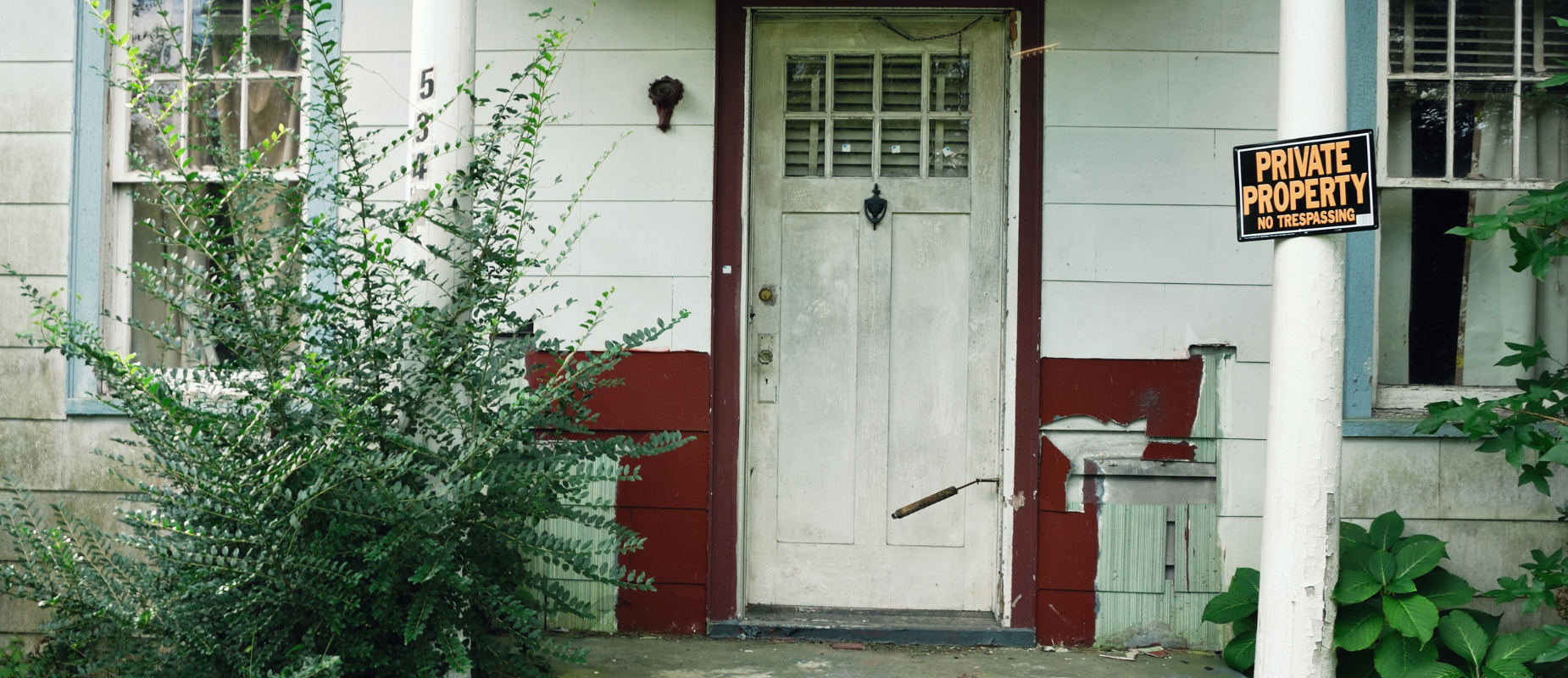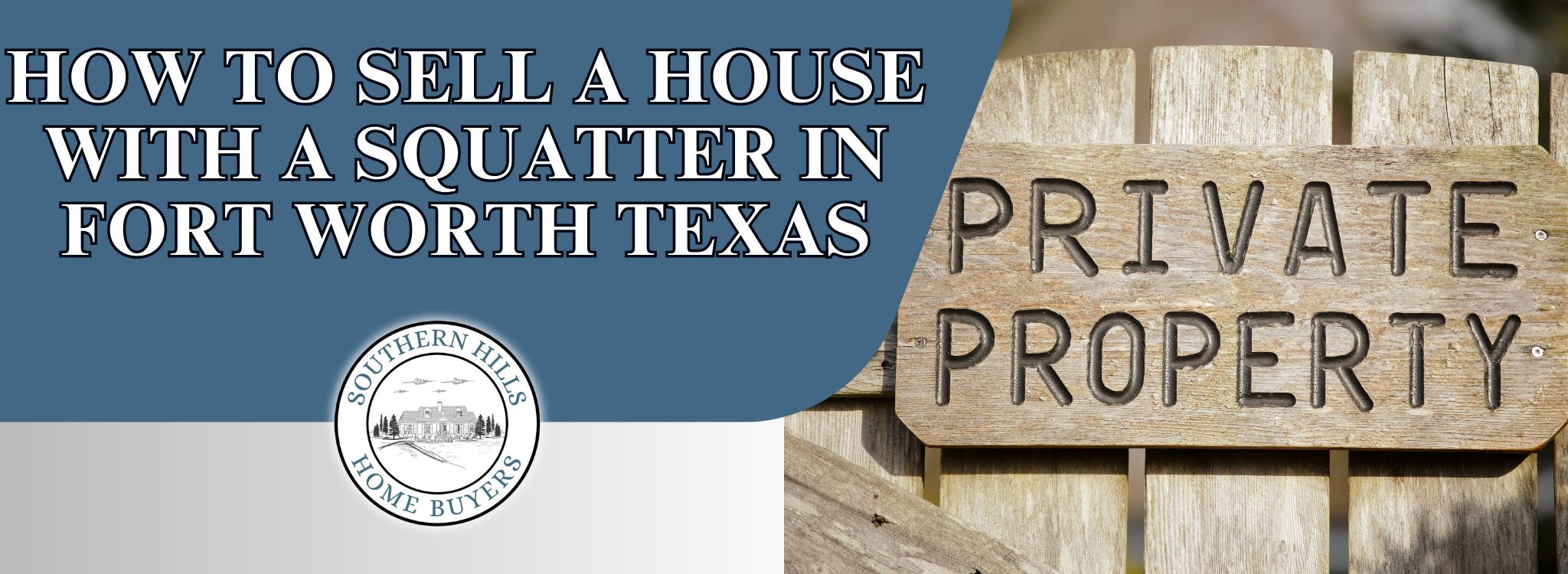
How to Sell A House With A Squatter In Fort Worth, Texas / Selling a Home with Squatters in TX
How to Sell A House With A Squatter In Fort Worth, Texas
It’s never good to keep a property vacant for too long, as you run the risk of squatters. Squatters are individuals who occupy a property without the owner’s permission.
You’re not alone if you discover that a squatter occupies your property. A 2024 survey found that Fort Worth has the highest number of squatters among U.S. cities.
Squatters can derail a home sale, and their eviction usually requires legal counsel and police involvement. Selling a house with a squatter is a complex process involving specific steps to ensure a successful home sale at the best price.
How to Identify a Squatter: Squatter vs. Trespasser vs. Holdover Tenant
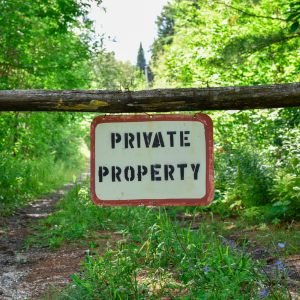
Not everyone who illegally occupies a property is considered a squatter.
A squatter lives in an abandoned, neglected, or vacant property without the owner’s knowledge or permission. The key distinction here is living because living entails the individual residing in that property indefinitely. This differs from a trespasser who does not intend to live on the property.
A trespasser is an individual who illegally enters or occupies a property for a short period without the intent to live in or claim the property.
Although technically squatting is a type of trespassing, they differ in intent. Furthermore, trespassing is viewed as a criminal offense, while squatting is typically civil. Squatters have legal rights that should be respected, whereas trespassers do not.
On the other hand, another type of trespasser is the holdover tenant.
A holdover tenant is an individual whose lease agreement has ended but who continues to reside in the property.
A holdover tenant is more complex than a standard trespasser. They could become one if they are still negotiating a new lease agreement or if they are continually making rent payments, which the landlord accepts without an official lease agreement. If the landlord stops accepting payment, the holdover tenant becomes a trespasser with no legal right to remain in the property.
Holdover tenants differ from squatters in that the property owner is aware of them and how they are evicted from the property.
Negative Effects of a Squatter Living on Your Property

Lower Sense of Security
When you wish to sell, having a squatter on your property can become a future issue. A history of squatters may raise concerns for potential buyers, as the house could feel unsafe or prone to break-ins. This could also lead to you investing more into your property by installing locks to ensure the safety of potential buyers.
Lower Property Value
If you’ve had a squatter living on your property for years, your house could suffer from wear and tear. Most squatters don’t have the resources to maintain a property properly, and since it’s not theirs, they could also be careless in how they treat it.
Continued misuse could lead to damage and deterioration, forcing you to shell out thousands in renovation or repairs, which could quickly become costly.
Delayed Home Sale
Evicting squatters is a legal process involving the court and police, which can delay a home sale for months.
The eviction process isn’t the only cause of delay; it also takes time to fix up the property after the eviction.
This time frame doesn’t account for the usual time for real estate professionals and homeowners to prepare the property for sale. In the worst case, it could take months to years to sell the home.
Additional Costs
Most homeowners spend money on beautification and minor property renovation before a sale. However, having squatters can incur additional costs.
While you’re waiting for the court order to evict the squatter, you’ll still have to continue making property tax payments, HOA dues, and other fees associated with your home.
So, if it takes 6 months to evict the squatter, you will have to continue making these payments, even though the squatter is using the property. It can take longer to evict a squatter than a trespasser because, in Texas, squatters have rights that must be respected, whereas trespassers do not.
Squatter’s Rights Through Adverse Possession
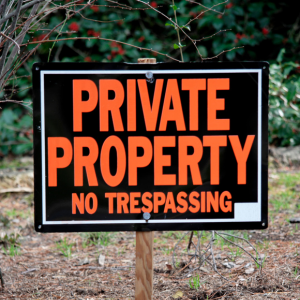
Squatter’s rights were created to ensure that land is being used productively. An individual can “squat” on abandoned, unoccupied, and neglected properties without anyone’s permission, intending to live there.
In extremely rare cases, a squatter may eventually claim legal ownership of the property through what is known as adverse possession.
Adverse possession refers to the act of legally claiming ownership of a property that they do not own by meeting certain legal criteria.
This may sound scary for property owners, but don’t worry–it’s difficult to meet the requirements for a squatter to file for a legitimate adverse possession claim. Furthermore, it takes at least 3 years to claim adverse possession. So, if you’re not neglecting your property for years, it would be nearly impossible for someone to take it from you.
Requirements for Adverse Possession Claim
There are specific requirements for a squatter to claim adverse possession, which are difficult to fulfill. Additionally, the burden of proving the claim lies with the squatter.
- Hostile Possession of the Property: This means that the squatter must reside on the property without the knowledge or explicit permission of the actual owner. This does not mean ‘hostile’ but rather hostile because the squatter violates the property owner’s rights.
- Peaceful Possession of the Property: The squatter must come to reside in the property peacefully and not in a threatening manner to the actual owners of the land.
- Extended and Continuous Occupancy of the Property: The squatter must reside in the property for at least 3 years without interruption.
- Exclusive Occupancy of the Property: The squatter must reside in the property exclusively, as if the actual owner, without allowing other squatters to reside within.
- Open and Notorious Possession of the Property: The squatter must not hide their use of the property. They must be seen and known to occupy the property.
- Beautification of the Property: The squatter must take care of and try to improve the property, as an actual owner would, to the point that their presence and care are evident in the property.
If they meet all these requirements, they may be eligible to file for adverse possession, depending on when they have continuously occupied the property. If they have occupied the property for 3 years, they claim possession through a color of title. If they have openly and continuously lived there for 5 years while paying property taxes, they can claim possession through a duly registered deed. If they have resided in the property for 10 consecutive years, they can claim ownership without any title or deed as long as they meet all the requirements above.
How To Get Rid Of Squatters In Texas?
The key thing to remember when dealing with squatters is never to handle them personally. Do not make the mistake of forcibly removing them from the premises or using aggressive tactics such as turning off electricity and water lines or employing other harsh measures.
These actions can backfire and result in legal consequences. As we’ve discussed, squatters have rights, and these actions could be viewed as violations of them. If dealing with squatters, always follow the proper legal process to evict them.
Overview of the Eviction Process
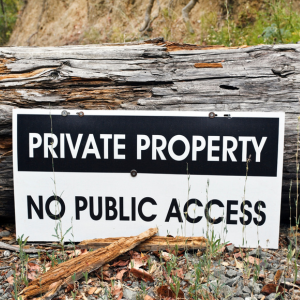
Evicting someone in Texas is a straightforward process, but it does take time.
First, the property owner must serve a “Notice to Vacate” to the squatter. Don’t do this personally, but through mail or the police. Depending on the owner’s preference, this notice could be for 3 days or more.
After the notice period expires and the squatter has not vacated the property, the owner can file an eviction lawsuit. If the court rules in the owner’s favor, the judge will provide a “Writ of Possession.” Once this writ is issued, the police will give the squatter a 24-hour notice to vacate the property before they forcibly remove them from the premises.
Of course, an eviction may seem straightforward, but it doesn’t always go smoothly. To manage expectations, account for potential delays, and court backlogs.
Keep all documentation regarding the squatter while you wait for the court’s ruling to strengthen your case. Additionally, although the police cannot evict a squatter without a writ of possession, it could still be beneficial to file a police report as soon as you discover the squatter’s presence.
How to Prevent Squatters from Occupying Your Texas Property
Property management is the best way to prevent having to deal with squatters. There are several steps you can take to avoid a squatter problem. Follow these tips, and your future self will thank you:
Frequently visit your property. Regular visits will reduce the likelihood of a squatter, as you can spot a trespasser early on before they can establish themselves as a squatter.
Secure the property. Investing in security systems, such as cameras and alarms, and simply placing locks throughout the property would be very beneficial. This not only helps ward off squatters but could also raise the value of your property to potential buyers.
Know and befriend your neighbor. Introducing yourself to your neighbors is a good way to prevent potential squatters. Since they know the real owner of the property, they’ll be more likely to spot and report any squatters.
Put up a “No Trespassing” sign. This is another cost-effective way to establish ownership.
Screen all potential tenants. If you’re looking to rent out your property, do a thorough screening to ensure they have the means to make payments and won’t scam you or become trespassers. These background checks could also help identify if they have a history of squatting.
How To Sell A House With A Squatter In Texas
When selling a Texas home with a squatter problem, you can go about it in two ways.
Option 1: Traditional Home Sale with a Real Estate Professional
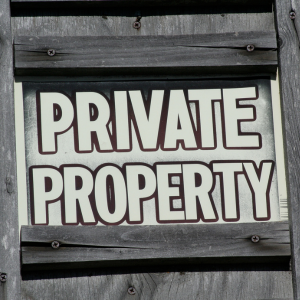
You may already know this option if this isn’t your first home sale. The main difference is that before proceeding with the standard home sale, you must go through the eviction process, as discussed above. This process could take months, and only after the squatter has vacated the premises can you begin repairs and renovations. Your real estate professional will guide you through the process: handling the paperwork, house valuation, staging, listing, marketing, negotiation, and ultimately, closing the sale.
Since a real estate professional will handle most of the heavy lifting, they normally charge a commission fee of approximately 6% of your home’s sale price. Other costs to consider with this option include attorney and court fees associated with the eviction lawsuit. These fees can set you back a couple of hundred dollars to thousands, depending on the complexity of the case and the attorney you hire. Also, don’t forget the costs of repairing the damage the squatter has done to your property.
Although it will be a long and tiresome process, it could still be worth pursuing this route if we handle the property under circumstances where the estimated sale price of our property will still yield a good profit after the fact.
Option 2: Sell Directly to a Real Estate Investor
If you don’t want to deal with a squatter or simply don’t want to go through the hoops of an eviction process, consider selling to a real estate investor.
Real estate investors buy property in as-is condition, even with a squatter residing within. This is because they are well-versed in the industry and know how to deal with squatters effectively. Real estate investors are also known as cash buyers, looking to flip properties, so the home’s condition is not a major concern for them.
So, if you’re looking for a hassle-free, quick, and reliable sale, a real estate investor is a good option.
However, this convenience does come at a price. Real estate investors typically purchase properties at a lower price than a traditional sale would yield. A real estate investor’s sale bypasses the eviction process, marketing, staging, listing, repairs, and an expert’s commission fees. As a result, the sale costs less and can be completed in as little as a week, unlike your standard sale.
Helpful Fort Worth Information
- Is Fort Worth a Good Place to Live?
- Worst Neighborhoods In Fort Worth
- What Happens if an Appraisal Comes in Low in Fort Worth?
- How To Avoid A House Foreclosure In Fort Worth
- Fun Facts About Fort Worth
- How To Sell An Inherited House In Fort Worth
- Selling My House On My Own In Fort Worth
- How To Sell A House With A Squatter In Fort Worth
- Cost Of MLS Listings For Homes In Fort Worth, Texas
- Sell Your Fort Worth Home For Less Than Appraised Value
- Choosing The Best Title Company In Fort Worth, Texas
- The Process Of Selling Your Fort Worth Home Below Market Value
Final Thoughts: Selling a House with a Squatter in Fort Worth, TX
If you’re deciding how to sell your property with a squatter residing in it, you should take into account your current needs and circumstances. Do you want the most money that your home can offer? Can you commit the time and patience required for your property? Do you have the initial funds needed to invest in your property? Just remember, there’s no right or wrong answer to these questions. Just choose which one best fits your current needs.
If you want to sell to a real estate investor, look no further!
We’re the Southern Hills Home Buyers. If you have squatter issues on your property and are having a hard time selling your home because of this, why not sell to us instead? Our years of experience in the real estate industry have taught us how to navigate this tricky situation, so we’re prepared to send you a free, no-obligation, and fair cash offer straight to your email.
Simply fill out the form below with your property address and contact details, or give us a call! We’d love to discuss your home and get it off your hands in as little as 7 days!
Discover everything you need to know about selling a house in Fort Worth. This guide provides insights applicable across the state, whether in Fort Worth, Dallas, Houston, San Antonio, Austin, El Paso, or surrounding areas. We also buy houses, making the process quick and hassle-free for homeowners looking for a fast sale. For personalized assistance or to explore your options, We’re here to help every step of the way! Contact Us at (214) 225-3042.

Author: Brandon Beatty
Brandon Beatty’s passion is buying income producing properties and building businesses. He focuses on buying houses and small multi family buildings in Texas that have an opportunity to add value through proper management and renovations while helping property owners sell quickly and without the hassles of a traditional sale.
Brandon is the founder of Southern Hills Home Buyers and has been featured on real estate news sites, including Zillow, Redfin, Realtor.com, HomeLight, List With Clever, Offerpad, and OpenDoor.
Get Cash For Your Fort Worth, Texas House Today
We buy houses in Fort Worth, Texas without the hassle and red tape. Get your no-obligation cash offer for your home and just be done. Selling in as-is condition has never been easier.

